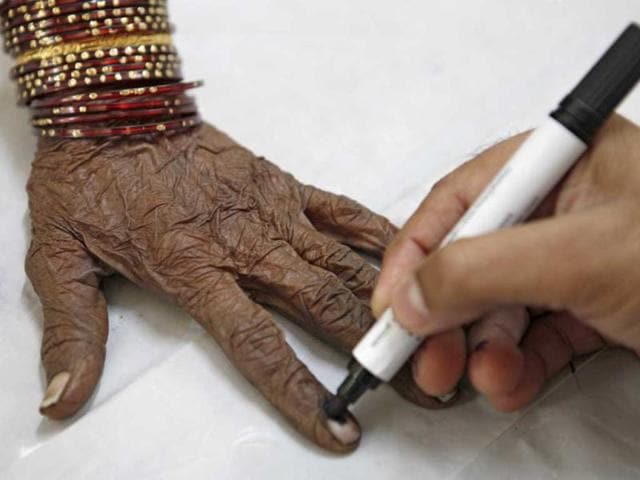Right to reject insufficient to register protest
Now that the apex court has allowed us to press the none-of-the-above button in EVMs, it is too small a symbol to register our protest against a bigger systemic malaise. Prasenjit Chowdhury writes.
It is quite instructive to see how and when the otherwise bickering political parties seem to join in a bond of solidarity, particularly when to comes to issues of self-preservation. The Central Information Commission knew it well when it sought to bring political parties under the ambit of the RTI Act.

Without the storm trooping of the Congress vice-president Rahul Gandhi and President Pranab Mukherjee’s ‘reservations’ on the proposed enactment, it is almost certain that the Cabinet would have gone ahead with promulgating the Representation of the People (Amendment and Validation) Ordinance, 2013.
Years before Rahul Gandhi, Nehru wanted to hang corrupt and black marketeers from the nearest lamp post. Former PM AB Vajpayee once declared his electoral fight in Bihar as a fight against criminalisation of politics.
President K R Narayanan’s fiat was along a line a self-purification, holistic in the hope that political parties should refrain from giving tickets to candidates with criminal background to curb criminalisation of politics effectively. The Vohra Committee reported nearly 20 years back that a mafia network was virtually running a parallel government in India.
The rub is, in realpolitik criminals are central to the electoral mechanism and that the changes likely to be forged in the system are only cosmetic. Thus, we got MPs like Mohammad Sahabuddin for four successive terms from Siwan in Bihar on an RJD ticket.
Or, Atiq Ahmad in the 14th Lok Sabha from Phulpur in Uttar Pradesh, who despite being acknowledged as one of the most powerful gangsters in the Allahabad region was allowed to contest in 2009 general elections. Or take the instance of Ashok Veer Vikram Singh aka Bhaiyya Raja, an unchallenged don for decades, but also a two-term former MLA from Madhya Pradesh, who, arrested for murder in the 1990s, decided to fight his first election from prison.
The Association for Democratic Reforms (ADR) and National Election Watch (NEW) reported that of 4,807 sitting MPs and MLAs, 1,460 (30%) have declared criminal cases against themselves in the self-sworn affidavits prior to contesting elections. The 2009 Jharkhand assembly had the inglorious record to lead the band with the highest percentage of elected representatives (74).
At the height of the fodder scam, Lalu Prasad continued to be perceived as the messiah of the poor. It is interesting that both Mohammad Shahabuddin and Mukhtar Ansari were known to have acquired a Robin Hood persona.
Relevantly, an ADR analysis for elections in the last decade shows that legislators mired in the heady mix of ‘politics, criminality and crores’ not only have a higher chance of re-contesting, they also have a better record in winning elections than candidates with a clean record.
When one sees that even Narendra Modi, projected as BJP’s PM candidate, dilly-dallies on sacking a tainted minister, or that the ordinance was about to be promulgated by the Congress core committee, one cannot but feel a sense of self-abnegation at the tolerance of our political top brass towards criminal politicians.
Are we to always choose the lesser evil? Now that the apex court has allowed us to press the none-of-the-above (NOTA) button in EVMs, it is too small a symbol to register our protest against a bigger systemic malaise.
Prasenjit Chowdhury is a Kolkata-based commentator
The views expressed by the author are personal





